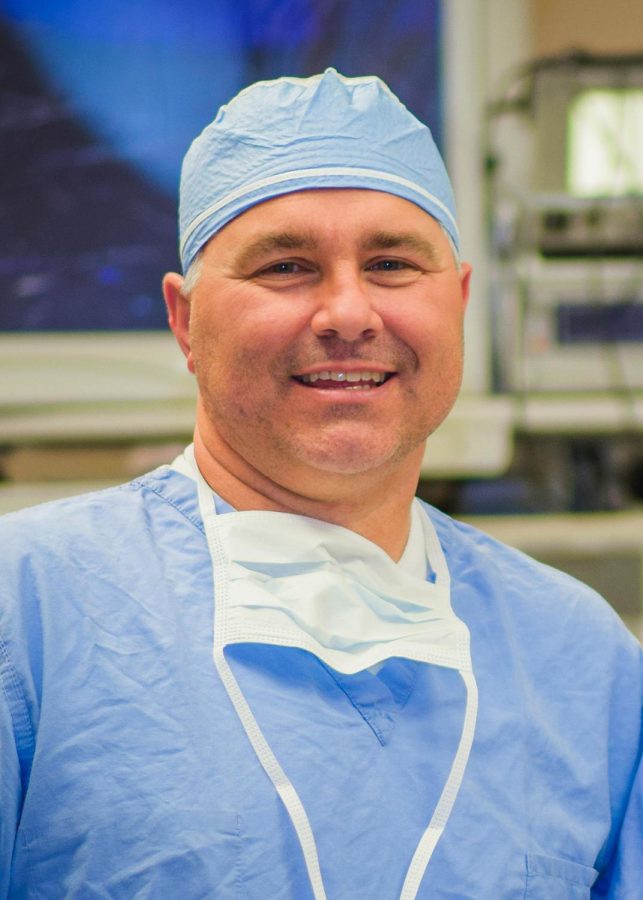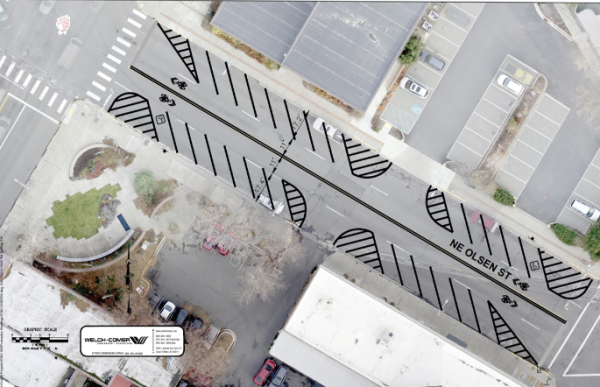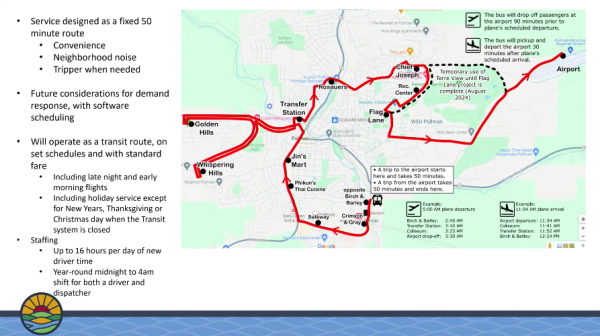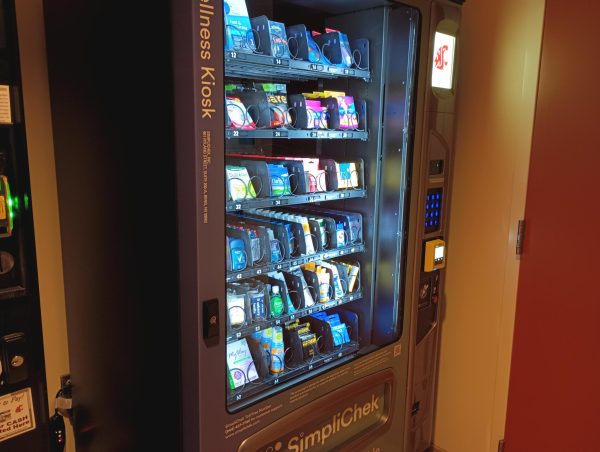New procedure to help reduce pain without opioids
Treatment option may help patients avoid side effects, addictive qualities of narcotics
Corey Johnson, a certified registered nurse anesthetist, says the radiofrequency ablation procedure can relieve back and knee pain without opioids.
January 7, 2019
Pullman Regional Hospital patients now have access to a new procedure that helps with pain management.
Corey Johnson, a certified registered nurse anesthetist, said the new procedure involves radiofrequency ablation. It is narcotics- and surgery-free. Pullman Regional Hospital made it available in October of 2018.
Johnson said the procedure was implemented in order to have opioid-free options for patients. He defined opioids as addictive and said they can result in various side effects such as nausea and itching.
The procedure was carried out in hospitals throughout the Palouse before it was implemented in Pullman, Johnson said.
“The radiofrequency ablation procedure involves radio waves, which create heat that disrupts the sensory nerves of a certain part of the body, such as the knee or hip,” he said.
Johnson said the procedure, which can be done to relieve back or knee pain, takes about 30 minutes and requires the patient to be under deep sedation. The procedure is also used to reduce pain symptoms in a patient prior to surgery through a doctor’s referral. He said the effects of the procedure last about nine months on average, but it varies from patient to patient.
Patients need to be referred to the procedure by their doctor, Johnson said. They would have a consultation and scheduled the approved procedure within a week.
Johnson said the procedure could be utilized by patients who either don’t qualify for surgery or do not want to go through surgery. The procedure reduces pain as well as the need for opioid medication.
Possible side effects of the procedure include risks of infection, minor bleeding or bruising but only one-twelfth of patients experience any side effects, Johnson said.
He said the cost of the procedure depends on whether a patient has Medicare or insurance and how much the insurance will cover. The hospital bills the insurance company, and the insurance company decides how much it will pay determining the total cost to the patient.
Johnson said that patients would need to check with their insurance companies and call the hospital to get an estimate of the cost for the Radiofrequency Ablation procedure.
























Bhupinder Saini • Jan 20, 2019 at 6:54 am
Radio frequency ablation is not a new procedure. For back pain I have been doing this procedure for the twenty years. For hip & knee pain this procedure has been there for at least five years.
So to claim that this is new procedure is not true.
I also agree with Dr. lee’s Comments.
Boris Yaguda • Jan 20, 2019 at 4:08 am
What Dr Epstien said. “new procedure” that has been around for years years and years.
Michael Braunstein. • Jan 19, 2019 at 9:42 pm
If this is for medial nerve ablation it is not at all a new procedure and takes a few minutes. Is the article about something else?
Rich Winne • Jan 19, 2019 at 9:05 pm
Really? A “new procedure”? Requires “deep sedation”? Sad article. Please do some background research before you post such a waste of time article. RF has been around for 40 years!! Makes you and your site look ignorant.
Char • Jan 19, 2019 at 8:35 pm
Are you kidding me? A nurse is doing interventional pain medicine unsupervised? What qualifications or board certifications does this nurse hold that qualifies him to do this? I went to school for 13 years to do what I do, have taken 5 different board exams, had incredibly rigorous training, and am highly qualified to do such things. This nurse had 6 years of schooling, and is endangering patients lives by being able to do this. The hospital should be ashamed of themselves for allowing this to take place under their roof.
katrina lewis • Jan 19, 2019 at 8:12 pm
DR Epstein summarized things perfectly. This journalist /hack reporting obviously did not do their research, and the whole article is likely part of the agenda of industry and likely CNRA societies to push the agenda that nurses equate to physicians. This article should not have been included in Doximity. It gives no relevant info, is highly inaccurate and paints a deceptive picture of what true chronic pain management entails and non opioid options. The hospital in question is just trying to make money from a procedure that should not be done by nurse anesthetists in the first place.
Danial • Jan 19, 2019 at 7:15 pm
Also a fellowship trained and pain boarded physician here agreeing with Dr. Epstein. I’m not sure what I find more uncomfortable.. the fact that a nurse anesthetist without training is doing these procedures and has just ‘discovered’ them or that the article is so horribly written that the author didn’t even bother to google to procedure to realize that there are a lot of inconsistencies with what is being reported.
Scott Loev, DO • Jan 19, 2019 at 7:04 pm
As a Fellowship Trained Pain PHYSICIAN – I agree with Dr Epstein 100%
Jeffrey Katz • Jan 19, 2019 at 6:57 pm
Well, I am officially putting Doximity news in my Spam folder now. Having this nonsense fluff marketing piece as ‘news’ raises concerns on the veracity of Doximity as a source for anything.
Travis Lee, DO • Jan 11, 2019 at 12:59 pm
As an accredited fellowship trained pain management physician, I agree 100% with Dr. Epstein.
Lawrence Jay Epstein, MD • Jan 9, 2019 at 8:54 am
Funny, I along with 100’s of other specialty trained Pain Physicians, have been performing this procedure regularly (I perform >100/year) for at least 20 years. When done by a Fellowship trained Pain Physician, the procedure rarely requires any sedation (<5% of patients) and is very well tolerated. It is unlikely to be "approved within a week" as virtually every insurance (including Medicare) requires that the patient have 2 diagnostic nerve blocks PRIOR to the Radiofrequency procedure. These are usually done 1-2 weeks apart. About 1/3 of patients actually get long lasting relief after the nerve blocks alone (never need the Radiofrequency procedure). Patients don't need "a referral from a Doctor" when seeing a Pain Physician (most Doctors who are not specialty trained would not know to refer for it). Anyone with chronic back pain which is worse in the morning (getting out of bed) or standing still, should make an appointment to see a Pain Physician. That Physician can evaluate you. Likely, you would first go for Physical Therapy (if not already done) and treatment would progress, if that is ineffective.